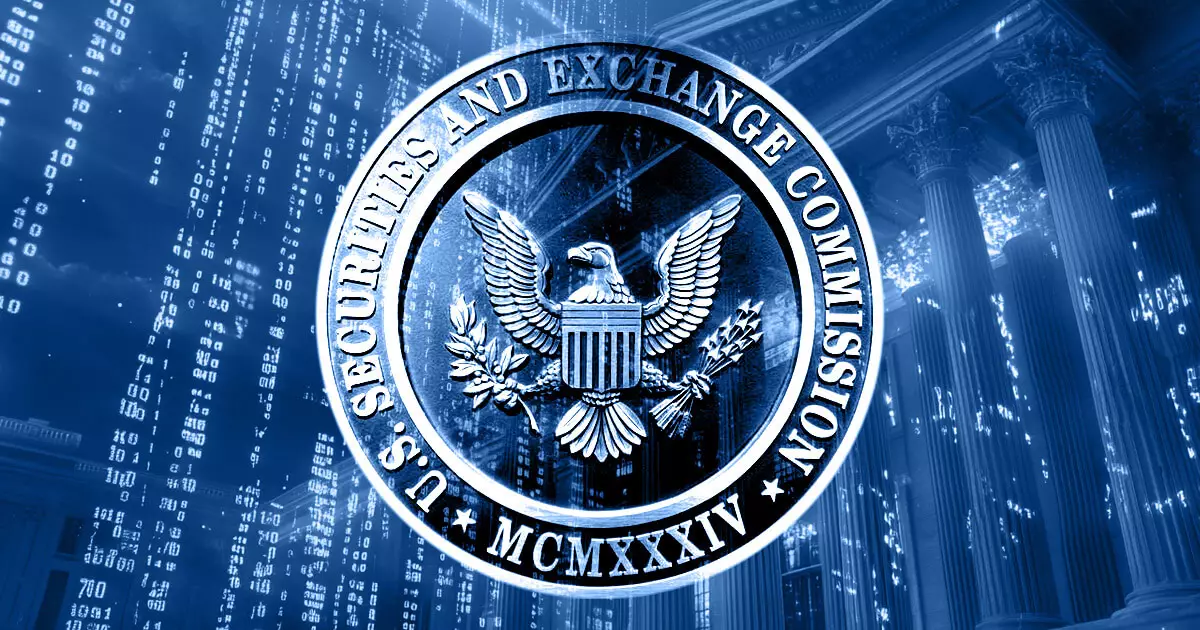The recent activities surrounding cryptocurrency exchange-traded funds (ETFs) have sent ripples throughout the financial industry, particularly with the U.S. Securities and Exchange Commission (SEC) acknowledging significant filings regarding Litecoin and Bitcoin ETFs. These developments suggest a potential shift in regulatory attitudes towards cryptocurrencies, which could pave the way for broader adoption and investment opportunities in this fast-evolving market. As traditional asset frameworks race to incorporate digital assets, the SEC’s willingness to engage indicates a growing openness that could serve to legitimize the crypto sector.
Understanding the Filings: Litecoin and Bitcoin ETFs
The SEC has recognized an amendment filed by Grayscale for a spot Litecoin (LTC) ETF and a separate proposal concerning in-kind redemptions for BlackRock’s iShares Bitcoin ETF (IBIT). Analysts view this as a pivotal moment that could lead to eventual approvals, particularly for the Litecoin ETF. The notion that Litecoin is categorically considered a commodity rather than a security further bolsters this expectation. The recognition of these proposals is not just bureaucratic; it reflects a burgeoning acknowledgment of the operational and regulatory frameworks that could govern cryptocurrency trading in the future.
Bloomberg’s senior ETF analyst, Eric Balchunas, pointed out that due diligence has been performed on the Litecoin ETF application, hinting that it meets the necessary regulatory standards. Such confidence from industry analysts can significantly influence market sentiment and investor confidence in crypto-related financial products.
One of the standout features of BlackRock’s application is the proposal for allowing in-kind redemptions. This mechanism would allow institutional investors to redeem Bitcoin directly rather than converting it to cash, a move that can vastly improve efficiency while minimizing tax implications. In-kind redemptions have emerged as part of a larger trend aimed at increasing liquidity and operational efficiency within ETF markets. This could significantly reshape how institutional players interact with crypto assets, making them a more viable option for large-scale investment strategies.
The SEC’s engagement with these filings marks an important phase in the regulation of cryptocurrency investments. Acknowledging these ETFs can attest to a growing acceptance of cryptocurrencies as legitimate financial instruments. If the SEC chooses to approve multiple applications simultaneously, it could ignite a further influx of investment into not only Bitcoin and Litecoin but potentially other altcoins seeking similar structures for ETF offerings.
Market analysts speculate that this may be just the beginning of a series of approvals, indicating that cryptocurrencies are positioning themselves for greater integration into the traditional finance landscape. With regulatory clarity, digital assets can gain wider acceptance among institutional investors, ensuring their long-term sustainability.
The changing dynamics as the SEC engages with cryptocurrency ETFs convey a significant turning point in the regulatory landscape. The potential approval of these applications could usher in a new era of investment vehicles catering to cryptocurrencies, moving beyond Bitcoin to include a diverse array of digital assets. As long as regulatory frameworks adapt and evolve alongside this industry, the prospects for cryptocurrency ETFs appear promising. This is a critical juncture that market participants are keenly monitoring, with implications that extend far beyond the immediate products being considered. The future of cryptocurrency in traditional finance may very well hinge on the outcomes of these regulatory decisions.


Leave a Reply